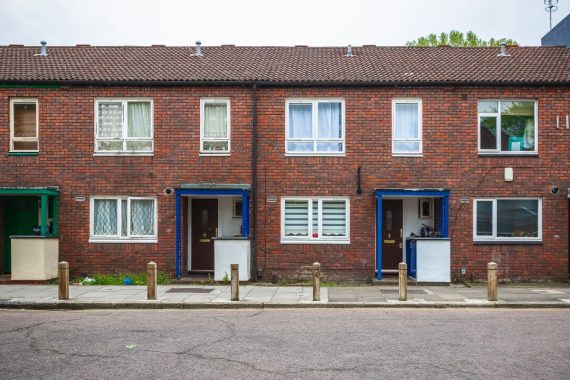First UKHSA report on health inequalities highlights large NHS bill from deprivation

The UK Health Security Agency (UKHSA) has for the first time set out the ‘stark’ health inequalities faced by those living in the most deprived areas.
It includes double the rate of emergency hospital admission for infectious diseases in the fifth most deprived areas of England which costs the NHS up to £1.5bn a year, the analysis from UKHSA researchers has found.
Those living in the North West are 30% more likely to be hospitalised for an infectious disease compared with England overall and 50% more likely than those in the South East, the data in the first health inequalities report from the UKHSA shows.
Further breakdown shows people living in deprived communities have twice the emergency hospital admission rates for respiratory diseases in general and up to seven times higher for tuberculosis and six times higher for measles.
They are also two and a half times more likely to be admitted to hospital for sepsis, the report found.
The most deprived 20% of the population are 1.7 times higher to be admitted for gastrointestinal diseases than the least deprived, it added.
People from more deprived areas are also disproportionately impacted by radiation, chemical, climate and environmental hazards, including pollution in the areas where they live, the analysis showed.
Wide inequalities can also be seen between different ethnic groups which varies depending on the disease, researchers said.
Emergency admission rates for tuberculosis were 29 times higher for people who self-reported as being in the ‘Asian other’ category, 27 times higher for ‘Indian’ and 15 times higher for ‘Black African’, compared to ‘White British’ people, the report found.
Those in inclusion health groups including people seeking asylum, people in prison, people experiencing homelessness and people who inject drugs are disproportionately impacted by a range of infectious diseases, the report noted.
UKHSA said the report was a ‘starting point’ in addressing the disparities that included improving vaccine uptake but also prioritising early treatment in some areas.
Dr Leonora Weil, deputy director for health equity and inclusion at UKHSA, said: ‘The report reveals some stark facts on the state of inequalities in health security faced by some people, in particular those living in the most deprived communities and certain areas of the country, some ethnic groups, as well as excluded groups such as those experiencing homelessness.
‘These health protection inequalities – where there are poorer health outcomes based on where you live, your socio-economic status or ethnicity are avoidable, pervasive, and preventable.
‘Going forward our data and analysis of the evidence will help us, and our partners apply a health equity lens to all our health security work, to inform how we better target effective health services and wider interventions to those most at need.’
Gillian McLauchlan, the Association of Directors of Public Health’s spokesperson for health protection, and DPH for Salford City Council, said to tackle health inequalities everyone, regardless of their background, education, or income, should be able to access good jobs and homes, education, public transport and safe green spaces with clean air, and a healthy environment.
‘There also needs to be access to effective services, not just to help people when they are critically ill but also when they need support to stay well.
‘Part of our job as directors of Public Health is to protect people from infectious diseases and dangerous substances, and we work in partnership with colleagues in UKHSA, local authorities, the NHS, schools and the voluntary sector to do this.
‘However, to do this effectively for the whole population we need adequate resources and funding.’
A Department of Health and Social Care spokesperson said: ‘This shocking report shows the appalling healthcare inequalities this government inherited.
‘Our Plan for Change is reforming the NHS to get it back on its feet so it is there for everyone, regardless of who they are or where they live. We have hit the ground running, delivering an extra 3 million appointments since July to cut waiting lists.
‘In the longer term, we are taking radical action to shift the focus of care from sickness to prevention so that people live healthier lives for longer, regardless of their background.’
Visit Pulse Reference for details on 140 symptoms, including easily searchable symptoms and categories, offering you a free platform to check symptoms and receive potential diagnoses during consultations.
Related Articles
READERS' COMMENTS [1]
Please note, only GPs are permitted to add comments to articles














Costs of NHS cannot be looked at in isolation.
Better funding to deprived areas, and increase in lower wages, funded by taxes on the super-rich, to fund targetted support to deprived areas, would save the economy and the NHS a lot of money in th elong term: it would also save the people in the deprived areas a lot of pain, suffering, and poor health, and boost their economic output.